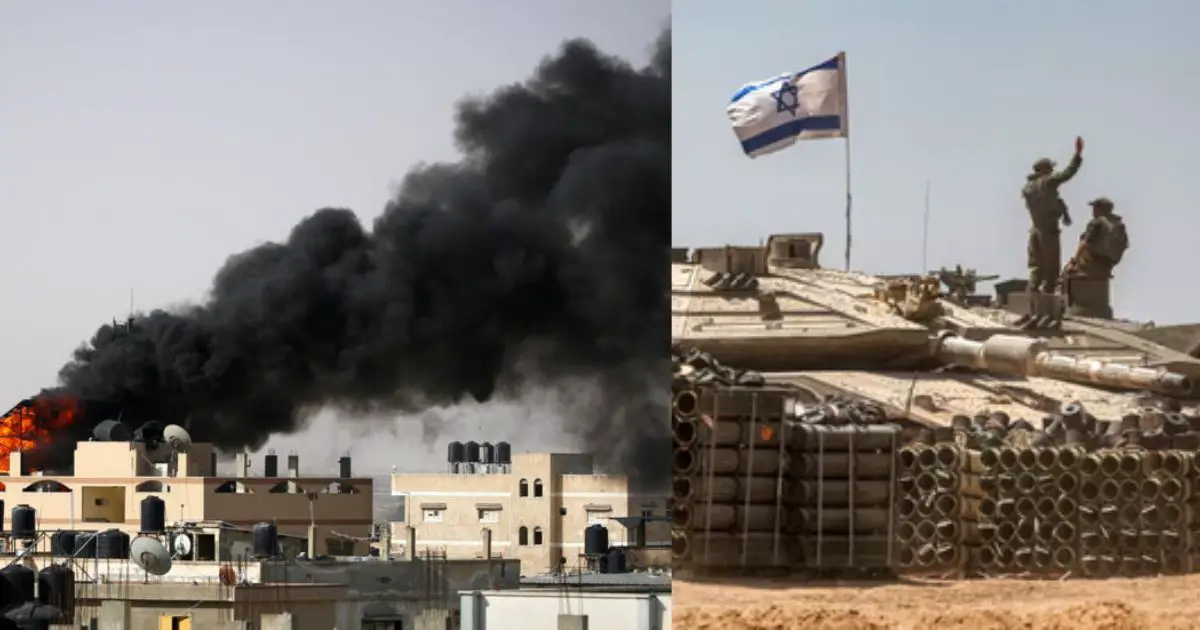Recent scrutiny has been cast upon Israel’s use of American-supplied weapons during the conflict in Gaza, prompting the United States to reassess the implications for international humanitarian law. This examination delves into the nuanced dynamics surrounding this issue, exploring the allegations, the responses from both the US and Israel, and the broader implications for arms transfers in conflict zones.
Understanding the Allegations: The allegations against Israel stem from concerns that American-supplied weapons may have been utilized in a manner inconsistent with international humanitarian law. Reports suggest that during the conflict in Gaza, instances occurred where these arms were deployed in ways that raised questions about adherence to legal obligations. The gravity of such allegations cannot be understated, as it implicates not only the parties directly involved but also the responsibility of the United States as a supplier of weaponry.
The US State Department’s Assessment: In response to mounting concerns, the US State Department conducted a comprehensive assessment of the situation. The findings, outlined in a report submitted to Congress, acknowledge the possibility that American-supplied weapons were indeed used in manners inconsistent with Israel’s obligations under international law. However, the report also underscores the complexity of the situation, noting that complete information was not readily available for a comprehensive assessment. Despite these reservations, the State Department deemed it “reasonable to assess” that breaches may have occurred, signaling a cautious acknowledgment of the gravity of the allegations.
Challenges and Limitations: Navigating the landscape of arms transfers and their subsequent use in conflict zones presents inherent challenges. The opacity surrounding military operations, coupled with the complexities of international law, often obscures a clear understanding of the situation on the ground. This lack of transparency poses a significant obstacle to conducting thorough assessments and holding parties accountable for their actions. Additionally, the intricate web of geopolitical interests further complicates efforts to address alleged violations effectively.
Responses from Israel: Israel has vehemently denied any wrongdoing, asserting that its use of American-supplied weapons adhered to international law. The Israeli government has emphasized its commitment to upholding ethical standards in military operations, citing the rigorous internal mechanisms in place to ensure compliance. Furthermore, Israel has highlighted the unique security challenges it faces, underscoring the necessity of robust defense capabilities to safeguard its citizens. These responses reflect Israel’s perspective on the matter, positioning itself as a responsible actor in the conflict.
Implications for Arms Transfers: The allegations against Israel raise broader questions about the accountability of arms suppliers in conflicts worldwide. The United States, as a major provider of weaponry to various nations, faces scrutiny over its role in facilitating armed conflicts. The case of Israel underscores the need for greater transparency and accountability in arms transfers, ensuring that weapons are not used in violation of international law. Moreover, it underscores the importance of ongoing monitoring and evaluation mechanisms to assess the impact of arms transfers on conflict dynamics.
Addressing the Way Forward: Moving forward, addressing the allegations against Israel necessitates a multifaceted approach. Enhanced transparency and information-sharing mechanisms are imperative to facilitate more robust assessments of arms usage in conflict zones. Additionally, dialogue between arms suppliers and recipients is essential to clarify expectations and ensure compliance with international legal standards. Moreover, the international community must redouble its efforts to promote peaceful resolutions to conflicts, thereby mitigating the need for arms transfers in the first place.
Conclusion: The allegations of breaches of international humanitarian law by Israel with American-supplied weapons in Gaza underscore the complexities inherent in arms transfers and their subsequent use in conflict zones. While the US State Department’s assessment signals a recognition of the gravity of the situation, challenges remain in addressing the allegations comprehensively. Moving forward, concerted efforts are needed to enhance transparency, accountability, and dialogue surrounding arms transfers, ultimately advancing the cause of peace and security in conflict-affected regions. See More….

